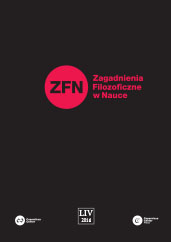The alleged activity of active intellect: A wild goose chase or a puzzle to be solved?
The alleged activity of active intellect: A wild goose chase or a puzzle to be solved?
Author(s): Sonia KamińskaSubject(s): History of Philosophy, Metaphysics, Epistemology, Philosophy of Mind
Published by: Copernicus Center Press
Keywords: Nous; nous poietikos; nous pathetikos; soul; intellect; God; Deity; actuality; potentiality; philosophy of mind; Aristotle; Thomas Aquinas; Franz Brentano; Victor Caston;
Summary/Abstract: Trying to describe the activity of Aristotle’s active intellect, we will sooner or later realize that we cannot find its right description, because Aristotle did not provide for one. He left us with many irreconcilable statements and questions with no answers. In the famous text Aristotle’s Two Intellects: a Modest Proposal Victor Caston claims that Aristotle did not describe the activity, because there simply is no such activity and we should therefore identify nous poietikos with God, because God too does nothing. Trying to find this lacking description is like going on a wild goose chase – Caston argues. In my text I will show that his solution, albeit tempting, is in fact a kind of “dissolution” and that a wild goose chase, although for many doomed to failure, can be fruitful. I will do so by presenting three groups or clusters of views on active intellect which – I believe – are philosophically significant. Caston’s proposal will be one of them, but not the privileged one. These three types of interpretations will hopefully provide us with an imagery that will help us somewhat come to terms with Aristotle’s succinctness.
Journal: Zagadnienia Filozoficzne w Nauce
- Issue Year: 2014
- Issue No: 54
- Page Range: 79-126
- Page Count: 48
- Language: English

